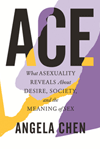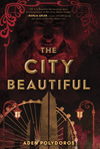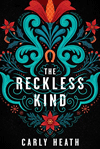Have I blogged or written a book review at all this year? No. Am I going to let that stop me from fulfilling my annual tradition of posting my most disappointing reads of the year and my favourite books of the year? Also no.
A reminder that most of my disappointing reads simply weren’t right for me. That doesn’t mean that they’re inherently bad books, or even that they won’t appeal to you. It simply means that, for one reason or another, they fell short of the expectations I had for them. Here’s why:

5. Flux by Jinwoo Chong
My rating: ![]()
Perhaps this is an unfair inclusion because I honestly can’t remember what I expected going into Jinwoo Chong’s debut novel Flux. Perhaps the bright and stylish yellow cover drew me in. Perhaps it was the blurb about how a man suspects his employers have inadvertently discovered time travel and are using it to cover up violent crimes. But I think it’s most likely that it was the neo-noir that attracted me. I found the main character’s relationship with a fictional 80s hardboiled cop show (which depicted an Asian character as a sidekick at a formative time for our biracial protagonist) and its lead character really interesting, especially as it becomes clear that he is using this fictional detective as a confidant to process past trauma. Unfortunately the plotting and worldbuilding in Flux never lives up to the noir aspects, and I found myself wishing Chong had honed in and told a tighter story that put the character’s relationship with the cop show front and center above all the timey wimey stuff.
Flux is Chong’s first novel, and while it didn’t work for me (or, judging from its 3.4 rating on goodreads, most people), there is some interesting work here about identity and nostalgia. With some more thoughtful worldbuilding and an editor who could tone down the wilder impulses of Chong’s storytelling, there’s potential here for some interesting work down the line.

4. The Rabbit Hutch by Tess Gunty
My rating: ![]()
My exact words to a friend upon finishing Tess Gunty’s The Rabbit Hutch were, “I am confused and not impressed”. A choice for one of the book clubs that I belong to, I had to coax myself through to the end by interspersing it with other, lighter, reads. Set in a low-cost housing complex in Indiana over the course of one July week, The Rabbit Hutch uses the POVs of multiple residents to tell the story. Always a tricky thing to get right, in The Rabbit Hutch I felt some characters drew me in, but when the chapter should shift I felt disengaged and unenthusiastic about the prospect of reading on. The prose is either going to work for you or it isn’t and, in the words of one friend, “the author has an MFA, and not to denigrate MFAs, but YOU CAN TELL”. Ultimately this was a divisive book, with book club members rating it anywhere from two to five stars on goodreads. I rounded up to a three, but it’s more of a two-and-a-half for me. Something of a slog, but mostly a case of something that just wasn’t for me, rather than a poorly written book.

3. Love Letters to Joy by Melissa See
My rating: ![]()

I’m such a sucker for crumbs of asexual representation that I looked forward to this YA romance, even though that’s not a genre that usually appeals to me anymore. First of all, I love that it’s about a panromantic asexual girl with cerebral palsy, and I’m thrilled that representation is out in the world for young readers. The key word here is young readers. As a woman in my mid-late thirties, Love Letters to Joy reads VERY young. Both the writing style and the plot are simplified and I found the characters lacked depth. The central relationship also never felt fully realized to me. It is a fast, light read and I loved the rep from all across the rainbow of queerness, but there needs to be more going on than just queerness to recommend a book, and unfortunately I didn’t find that here. Younger reads may be more entertained than I was though.

2. Lote by Shola von Reinhold
My rating: ![]()
My cockatiel pooed on my library copy of this book, ensuring that I had to pay for Lote, and I was angry that I had to pay for a book I didn’t even like, but perhaps she was just expressing my sentiments for me. I don’t actually think Lote is a bad book, it’s just so very much not my cup of tea. Part of the joy of belonging to a book club is that it nudges you outside of your comfort zone so you pick up titles you wouldn’t normally read. Sometimes you discover things about yourself or find unexpected favourites, while other times you can comfortably say it wasn’t for me, but at least I tried something different. The idea of exploring queerness and looking at the erasure of Black art from the canon by institutions and individuals is an interesting and worthy one, but I found Lote dense and difficult to understand. I’ve also never gotten on with Virginia Woolf’s works, or with modernist and post-modernist works of literature and I have limited interest in the art scene, so this was never going to be a rousing success for me. I also lacked an emotional connection with the book and its characters. Perhaps I’m just too stupid for this book. If you have more of an interest in that period in literature, or in academia, you’ll likely enjoy Lote a great deal more than I did.

1. Solomon’s Crown by Natasha Siegel
My rating: ![]()
Which brings us to my biggest disappointment of the year, Solomon’s Crown by Natasha Siegel. In a year when I read a lot of romance and especially queer historical romances, this alternate history romance, which imagines a romantic attachment between King Philip of France and Richard, Duke of Aquitaine, should have ticked every box. Instead it was a bitter disappointment. I have no idea what the point of this book was. All I can come up with is that the author wanted to write fanfiction about her two historical blorbos in a romantic relationship. So far, so good, except as she says in the author’s note she wanted it to be optimistic and not a darker, grittier, tragedy. In order to make that happen, all of the historical context is stripped away. Crusades? What crusades? England and France at war? Glossed over and handwaved because Phillip and Richard can’t bear to hurt each other. The moral complexity of these historical figures is also removed, so we’re left with under-developed characters who are defined by a few traits only.
Unfortunately this means that the relationship between Phillip and Richard also fails to tug at the heart strings. The connection between them is barely developed, which is just absurd in a romance! As a reader, I was left wondering why exactly these two men love one another, and since it’s certainly not developed on page, how exactly do they get from friendly acquaintances to professing their love to each other in overwrought declarations and putting each other above their ambition and family legacy? When you don’t have a sense of who they are as people separately or believe in their love story, it’s impossible to feel invested.
Perhaps the most glaring flaw, however, is that there is no tension whatsoever in a story that should innately be high stakes. They’re rival leaders of kingdoms and they both want the same land! Their fathers went to war, they could go to war at any time! Well, in Siegel’s universe love and the need for a happy ending trump all apparently, so the story plods along to its inevitable angst-free ending where the characters once again declare a love for each other that is never convincingly depicted on page.
I want to support people writing historical fiction and historical romance about their favourite people, but there’s none of the passion on display here that there should be, and the result is a bland tale that feels only surface-deep.
What books did you find disappointing this year? Let me know or link me your blog posts in the comments!
Next Up: Favourite Books Read in 2023




































 Siren Queen by Nghi Vo
Siren Queen by Nghi Vo




 Rogues: True Stories of Grifters, Killers, Rebels and Crooks by Patrick Radden Keefe
Rogues: True Stories of Grifters, Killers, Rebels and Crooks by Patrick Radden Keefe